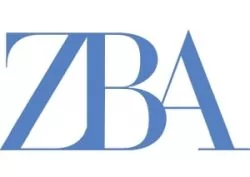Introduction
In order to help companies in India who have filing related defaults make a fresh start and rectify defaults under Companies Act, 2013 ("Act"), the Ministry of Corporate Affairs ("MCA"), through its circular dated 30 March 2020 (General Circular No. 12/2020), launched the Companies Fresh Start Scheme, 2020 ("Scheme"). Filings under the Scheme can be made from 1 April 2020 until 30 September 2020. It aims to alleviate the compliance and cost burden on companies during the current unprecedented public health situation in India caused by Covid-19. Whilst this Scheme has been launched in the context of COVID-19, this gives defaulting companies a unique opportunity to make a "fresh start" and file all belated documents without any additional fees.
Contents of the Scheme
The key highlights are:
- Application: The Scheme applies to companies which have defaulted in filing any documents, statements, returns including annual statutory documents (including annual returns and financial statements) on the MCA-21 registry which are customarily required within certain time limits. MCA-21 is an e-governance initiative of the MCA which enables easy and secure access of MCA services to companies in India. The Scheme is not applicable for default in filing of Form SH-7 (increase in authorised capital) and charge related forms (CHG-1 (registration of creation or modification of charge), CHG-4 (satisfaction of charge), CHG-8 (condonation of delay), CHG-9 (registration of creation for modification of charge for debentures) or for companies amalgamated under a scheme of arrangement or compromise or where an application has been made to strike off the name of the company from the Registrar of Companies ("RoC").
- Negative List: The Scheme does not apply to strike off companies, amalgamated companies, dormant companies and vanishing companies under the provisions of the Act.
- Fees: Defaulting companies are required to pay normal fees under Companies (Registration offices and Fee) Rules, 2014 while filing each belated document and no additional fees are payable.
- Immunity: The Scheme provides immunity to defaulting companies from penal proceedings or penalties for late submissions or filings. For the avoidance of doubt, immunity does not include any other proceedings such as proceeding involving the interest of its directors, shareholders or key managerial personnel or for any other breaches of the Act. Applications for immunity for late documents are separately applied for and can be made up to 6 months after the expiry of the Scheme by form CFSS-2020 through the MCA portal without fees.
- Exceptions to Immunity: No immunity applies for: (i) pending appeals in court against the management of a defaulting company; and (ii) any conviction by way of court orders passed (which have not been appealed) before the Scheme came in force.
- Withdrawal of Appeal: It is mandatory for a defaulting company to withdraw any appeal filed by it against any order of prosecution for penalty, passed by a competent court and furnish the proof of withdrawal prior to availing immunity.
Conclusion
One of the advantages of the Scheme is that it applies irrespective of the period of default and enables long-standing non-compliant companies to make a "fresh start". It should be noted that the Scheme states that the RoC will take action against companies who have not utilised the Scheme and have not filed documents in the required timely manner. This is one of the pro-active measures taken yet again by the MCA in light of the current crisis and will reduce the compliance burden on companies.
Originally published 31 July, 2020
The above is a generic analysis and should not be regarded as a substitute for specific advice based on the facts of a client's objectives and specific commercial agreements reached. Please do reach out to us at mail@zba.co.in for any queries.

